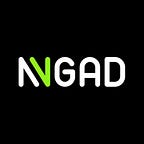Euclid Finance: The New Standard For Ethereum Restaking
In the realm of decentralized networks such as Ethereum, various crucial roles contribute to their functionality:
- Nodes (Validators): Serving as both provers and ledgers, nodes validate data within the network. A decentralized network’s security foundation lies in multiple nodes collaborating, with increased participation enhancing overall security. Ethereum, for instance, boasts over 900,000 validators, solidifying its reputation as a highly decentralized and secure blockchain.
- Stakers: By staking the native token such as ETH, participants earn rewards in the form of additional tokens for their contributions to network security and consensus.
EigenLayer, on the other hand, leverages economic security from staked ETH to support services in need of a decentralized network for safeguarding their operations. Within the EigenLayer system, there are 3 distinct roles:
- Operators: Operating as nodes, these entities facilitate the construction of decentralized networks for services seeking security through EigenLayer. A more decentralized operator network equates to heightened security for the services provided by EigenLayer.
- Restakers: These individuals contribute their staked ETH to lend economic security through EigenLayer.
- Actively Validated Services (AVS): They borrow security services from operators via EigenLayer, such as blockchain networks, bridges, oracles, and more.
Euclid aims to invent a new standard for restaking. It offers Restakers a seamless restaking experience and a secure omnichain Liquid Restaking (LRT) solution while elevating EigenLayer’s overall decentralization and security.
Euclid new standard offers the following benefits to EigenLayer restaking:
- No Entry Barrier to ETH Restaking
- Omnichain Liquid Restake Asset
- Incentivized Delegation Framework
- Unintended Slashing Protection
- Permissionless Operator Network
For Operators:
- Euclid introduces a delegation framework that treats all operators equally, enabling them to secure Euclid Restaker delegations without relying solely on brand recognition.
- Operators must stake ECL (Euclid’s governance token) and restake ETH or LST independently. By pledging ECL, Euclid reduces the entry barriers for Operators, ensuring the operator’s eligibility and competence to perform their responsibilities.
- This mechanism incentivizes operators with ECL staking rewards as well as commission earnings from those choosing to delegate with them.
For Restakers:
- Euclid significantly reduces the barrier to native ETH restaking. Restaking your native ETH through Euclid does not require 32 ETH. You can convert any amount of your ETH to elETH and restake on EigenLayer.
- Euclid supports cross-chain restaking, allowing users to enjoy the benefits of other networks’ efficiency and cost-effectiveness without direct interaction with the mainnet, while reaping additional restaking rewards.
- Euclid enables Restakers to diversify their assets across a sufficiently decentralized operator network. This mitigates the risk associated with single points of failure.
- The staked ECL will serve as a security deposit to compensate restakers for unintended slashing.
AVS plays a crucial role within the EigenLayer ecosystem. The benefit of using EigenLayer in AVS is that it incorporates a high-value asset ETH in its economic model. This prevents the consensus layer from being easily compromised by malicious actors. However, ensuring the security of AVS goes beyond this. It is equally important to have a decentralized network of operators providing restake services. If a small number of operators control the majority of restaked positions, the security of AVS cannot be guaranteed. (Read more about “Operator Collusion” risk in EigenLayer WhitePaper)
Therefore, a sufficiently decentralized Operator network is the foundation for Eigenlayer to provide secure services to AVS.
For AVS:
- Euclid’s operator network enables greater participation from open and permissionless operators, minimizing the need for trust in a single Operator. Through Eclid, AVS can significantly reduce the risk of operator collusion attacks and enhance decentralizing by leveraging both curated and permissionless sets of operators.
Overall, Euclid’s innovative approach not only strengthens security and decentralization but also introduces novel features within the EigenLayer ecosystem. It creates a win-win-win situation for Restakers, Operators, and AVS, benefiting all parties involved.
About Euclid
Euclid is a member protocol of NGAD, specializing in Omnichain Liquid Restake Assets, the simplest way to restake your ETH and LSTs to Eigenlayer.
